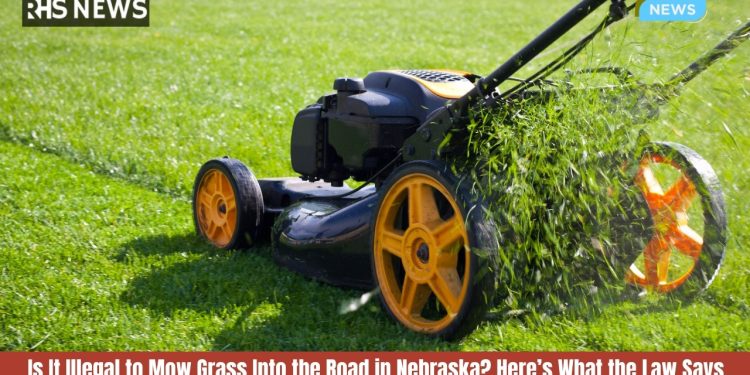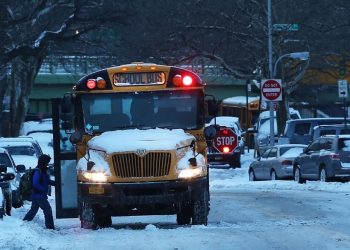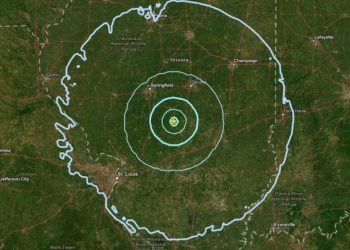The simple act of mowing a lawn can become a legal issue when grass clippings end up in the road. While many homeowners don’t think twice about where their clippings land, this seemingly innocent practice can lead to serious consequences in Nebraska. Understanding the state’s laws and local ordinances is crucial for property owners who want to avoid fines, liability issues, and safety hazards.
Nebraska State Law Overview
This Article Includes
- 1 Nebraska State Law Overview
- 2 Municipal Ordinances Across Nebraska
- 3 City-Specific Regulations
- 4 Penalties and Enforcement
- 5 Safety Hazards and Liability Concerns
- 6 Motorcycle Safety Statistics
- 7 Legal Liability
- 8 Environmental Impact Considerations
- 9 Lawn Recycling Methods
- 10 Collection and Composting
- 11 Professional Services
- 12 Best Practices for Homeowners
- 13 Equipment Considerations
- 14 Timing and Technique
Nebraska takes road obstruction seriously through its comprehensive traffic safety statutes. Under Nebraska Revised Statute 39-301, any person who obstructs a public road can face criminal charges and financial penalties. The law specifically states that obstructing public roads by “placing or leaving any other obstruction thereon” constitutes a Class V misdemeanor.
This statute creates a broad framework that can potentially include grass clippings when they create hazardous conditions on roadways. Property owners who allow debris to remain on roads after being ordered to remove it face additional penalties of up to three dollars per day for every day the obstruction remains.
The state also addresses vegetation management through Nebraska Revised Statute 39-1811, which requires landowners to maintain roadside areas. While this law primarily focuses on weed control, it establishes the principle that property owners have responsibilities regarding vegetation near public roads.
Municipal Ordinances Across Nebraska
Local governments in Nebraska have implemented specific regulations addressing grass clippings and lawn debris in roadways. These ordinances vary significantly between communities but generally prohibit depositing yard waste in streets.
City-Specific Regulations
The City of Auburn specifically asks residents not to throw or discard grass clippings into city streets, noting that debris accumulation creates problems for municipal services. Lincoln’s municipal code defines lawn waste as “grass cuttings or clippings and leaves,” establishing clear categories for organic debris management.
Wayne, Nebraska, requires property owners to keep adjoining streets free of excessive vegetation growth and prevents the depositing of litter on municipal property. The city defines excessive growth as vegetation reaching 12 inches or more in height and maintains strict enforcement throughout the growing season from May 1 to October 15.
Holdrege’s municipal code declares it unlawful for property owners to allow litter deposits on their property or adjacent areas, including the space between property lines and roadways. The city requires owners to maintain areas up to the curbed, paving, or traveled roadway line.
Penalties and Enforcement
Nebraska municipalities impose significant financial penalties for violations involving grass clippings and lawn debris. The enforcement structure typically involves escalating fines for repeat offenders.
Fine Structure
Holdrege implements a three-tier penalty system for vegetation and litter violations. First-time offenders face a $100 fine, second violations result in $200 penalties, and third or subsequent violations carry $300 fines. Cities can also assess cleanup costs directly to property owners in addition to monetary penalties.
Some municipalities outside Nebraska impose even steeper penalties. Bondurant, Iowa, for example, issues fines up to $750 for blowing grass clippings into streets, demonstrating the serious nature of this violation. While Nebraska cities may not reach these amounts, the trend toward higher penalties reflects growing concerns about road safety and environmental protection.
Collection Methods
When property owners fail to pay imposed penalties, Nebraska municipalities have several collection options. Cities can assess unpaid fines against the property as special taxes, similar to improvement assessments. Alternatively, municipalities can pursue civil court action to recover penalties plus interest and court costs.
Safety Hazards and Liability Concerns
Grass clippings in roadways create documented safety hazards, particularly for motorcyclists and cyclists. Fresh grass clippings contain approximately 85 percent water content, creating extremely slippery conditions even when they appear dry.
Motorcycle Safety Statistics
Motorcycle safety experts identify grass clippings as a major threat to rider safety. The slippery nature of grass creates traction loss that can lead to loss of vehicle control, especially during turns or sudden maneuvers. Unlike four-wheeled vehicles that may navigate through grass debris with minimal impact, motorcycles and bicycles face significantly higher accident risks.
Legal Liability
Property owners who deposit grass clippings in roadways face potential liability for accidents caused by their actions. Even without specific laws prohibiting the practice, negligence lawsuits can hold property owners responsible for injuries resulting from road hazards they created. This liability extends beyond criminal penalties to include civil damages for medical expenses, property damage, and other accident-related costs.
Environmental Impact Considerations
Beyond immediate safety concerns, grass clippings in roadways contribute to environmental problems through storm water contamination and drainage system blockages.
Water Quality Issues
Grass clippings contain high nitrogen levels that degrade water quality when they enter storm drainage systems. These nutrients can reduce oxygen levels in waterways, harming aquatic life and disrupting local ecosystems. The environmental impact has prompted many municipalities to ban grass clipping disposal in streets specifically to protect water resources.
Infrastructure Problems
Accumulated grass clippings clog storm drains and sewer intakes, creating flood risks during heavy rainfall events. When drainage systems become blocked, water backs up into streets and potentially into basements, causing property damage and creating additional safety hazards. Municipal governments face increased maintenance costs to clear blocked systems and repair damage caused by inadequate drainage.
Proper Disposal Alternatives
Nebraska property owners have several legal options for managing grass clippings that avoid road safety and environmental problems.
Lawn Recycling Methods
The most environmentally beneficial approach involves leaving grass clippings on the lawn as natural fertilizer. This practice reduces waste while providing nutrients that support healthy grass growth. Property owners using side-discharge mowers can make additional passes to blow clippings back onto lawn areas rather than into streets.
Collection and Composting
Many Nebraska communities provide yard waste collection services during growing seasons. From April 1 to November 30, yard waste including grass clippings cannot be disposed of in landfills, encouraging composting and recycling programs. Property owners can also create home composting systems to convert grass clippings into valuable soil amendments.
Professional Services
Landscape maintenance companies often provide grass clipping management as part of their services. Professional services typically include proper disposal methods that comply with local ordinances and avoid liability issues for property owners.
Best Practices for Homeowners
Responsible lawn maintenance requires planning and awareness of local regulations. Property owners should familiarize themselves with municipal ordinances in their specific communities since requirements vary significantly across Nebraska.
Equipment Considerations
Mulching mowers eliminate grass clipping disposal issues by cutting grass into small pieces that decompose quickly on the lawn surface. Side-discharge mowers require more careful operation to avoid depositing clippings in roadways, particularly when mowing along street edges.
Timing and Technique
Mowing during dry conditions reduces the slippery nature of grass clippings if some accidentally reach roadways. Property owners should avoid mowing immediately before rain events that could wash clippings into storm drains. Planning mowing routes to discharge clippings away from streets and sidewalks minimizes violations and safety risks.
The legal and safety implications of mowing grass into Nebraska roads extend far beyond simple tidiness concerns. State statutes provide broad authority for prosecuting road obstruction cases, while municipal ordinances establish specific prohibitions and penalty structures. Property owners face financial penalties, civil liability, and the moral responsibility of protecting public safety through proper lawn maintenance practices. Understanding these requirements and implementing appropriate disposal methods protects both individual property owners and the broader community from unnecessary risks and environmental damage.









